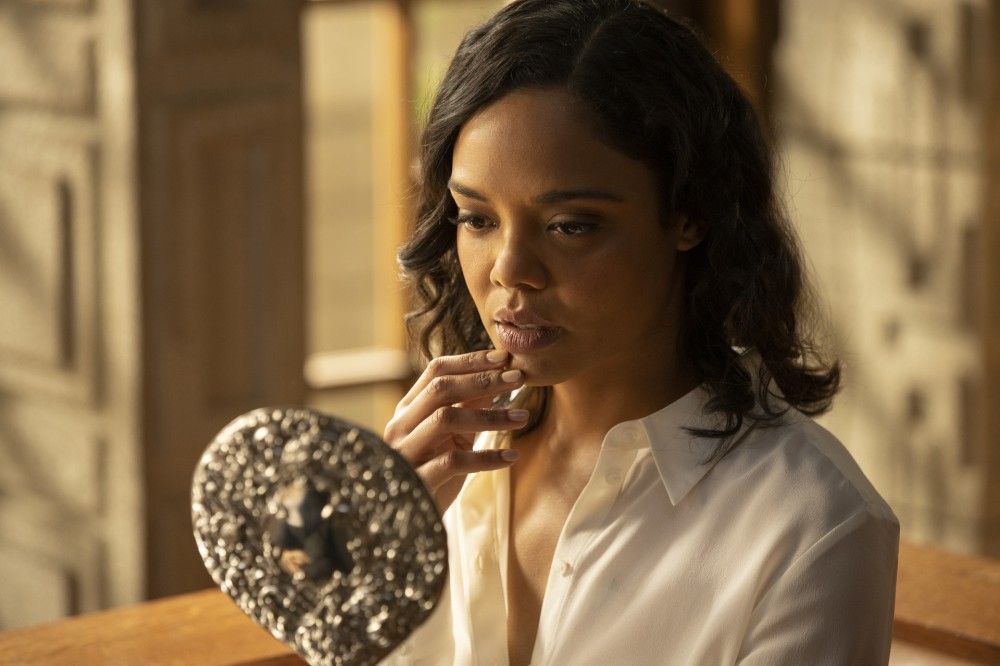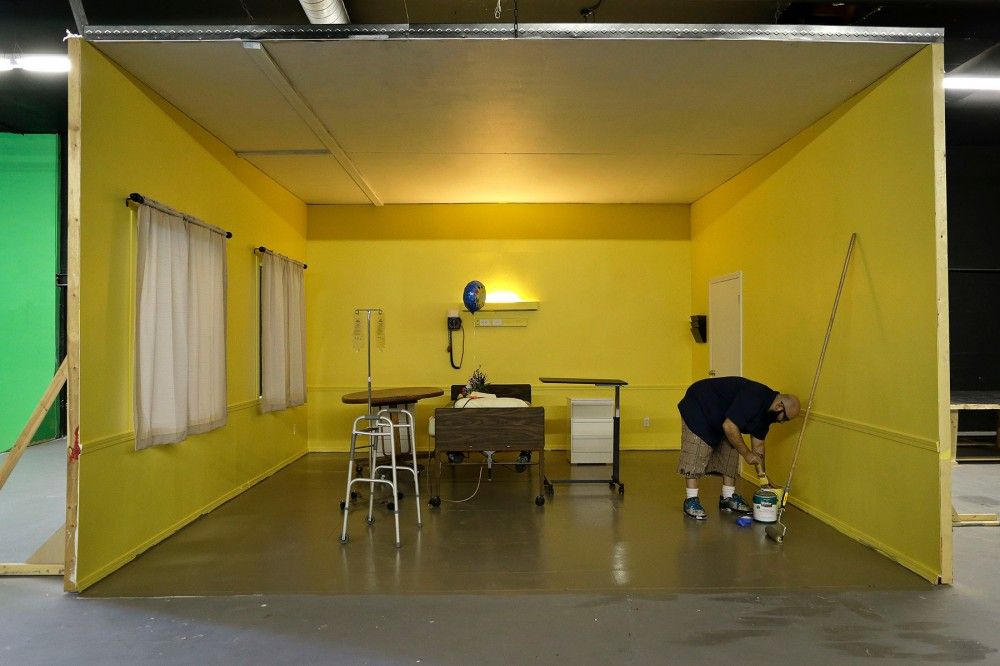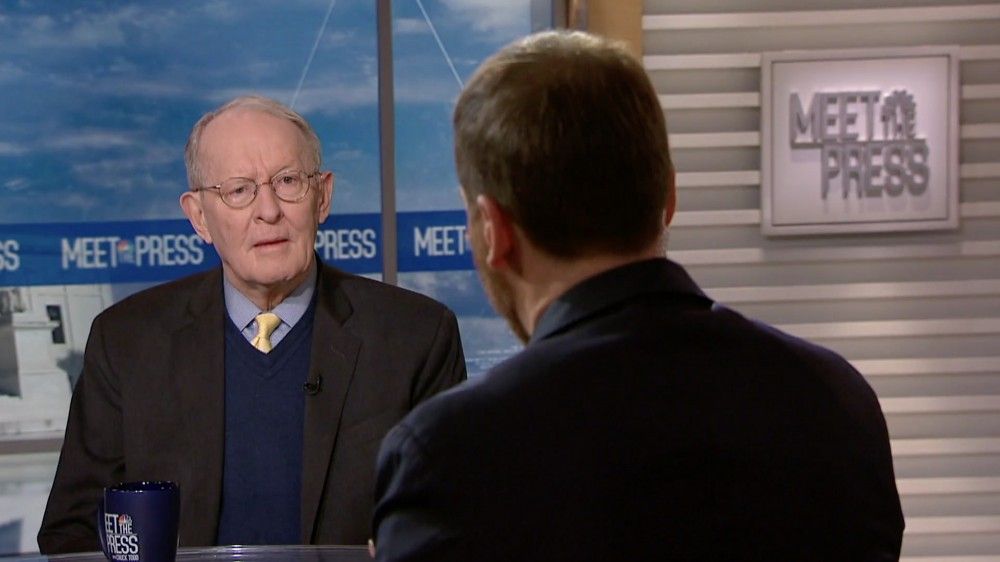
'Westworld' Recap: Identity Crisis
The Delos corporation has created a monster. Yes, another one.
This particular robotic beast isn’t an eerily accurate android replica of humanity. It’s a towering riot-control robot, one that looks more like Optimus Prime or Robocop‘s ED-209 than . There are hundreds more just like it, just waiting for a buyer. But the host-pretending-to-be-Delos bigwig Charlotte Hale has other ideas. “I’m sure we can find some use for them,” she deadpans. Consider Chekov’s mantle-placed gun officially locked and loaded, humankind.
This hint at a future fleet of battle droids is a momentary flash of dark wit in an otherwise relentlessly grim and violent episode. This week’s installment (“The Absence of Field”) follows a pair of hosts, Dolores Abernathy and the faux Charlotte, as they wage two very different battles for survival — one physically, the other mentally.
We’ll start with the fake-Charlotte, who’s succumbing to the robotic equivalent of mental illness. She’s struggling to keep up the ruse that she’s a human executive at Delos rather than a simulation of one. And let’s note that we’re initially not sure which host has had its electronic brain implanted in this particular body. (Remember: piggybacking on to Charlotte’s cerebral cortex is how Dolores smuggled herself out of the theme park in the first place, before manufacturing another copy of her own body as permanent housing.)
The way Dolores talks to her fellow host when they’re in private together — “No one knows you like I do, no one knows me like you” — implies it was someone close to her in her previous incarnation. That narrows down the list of candidates considerably. Is it her lover, Teddy? Maybe her father? Or perhaps even the reproduced consciousness of her human creator, Robert Ford? Place your bets now, people.
The problem for “Charlotte,” whoever she really is, is that pretending to be Ms. Hale all the time is wreaking havoc with her stability, as the personality she’s faking exerts more and more control over her mind. This causes her to self-injure rather gruesomely. “It’s like she’s trying to take back control,” she explains to Dolores. “Like she wants to cut into our skin and rip me out of her head.” Yeesh.
But meanwhile, since her knowledge of the real Charlotte is limited, she keeps screwing things up: coming on to her ex-husband without realizing they’re currently on bad terms, constantly neglecting to pick their son up from school, etc. (That last bit has a nasty payoff when she discovers “her” kid is being groomed by a predator and kills the guy in broad daylight.)
And “Charlotte” isn’t just leading a double life — she is in fact a triple agent. Before her death, the real deal was trying to smuggle out proprietary information, including all of the data secretly collected on the various parks’ guests. Now we find out who she was doing this for: Engerraund Serac, the secretive trillionaire who helped construct the Rehoboam supercomputer, and who has since removed himself from the grid almost entirely. Over the course of many years, he’s secretly eaten up a huge chunk of Delos stock, poising him for a takeover bid even as Ms. Hale serves as a mole from within. Will she pass along this revelation to Dolores, who’s tasked with finding the culprit(s)?
Speaking of Miss Abernathy: After narrowly escaping death at the hands of Incite security goons last week, she winds up in another gun battle, this time with crooked cops who’ve accepted a bounty to capture her. She manages to get the upper hand on them with a little help from Caleb Nichols, her new human friend. When he winds up with a bounty on his head and a pair of hunters dangle him off his construction site in an attempt to force him to divulge what he knows about Dolores, she intervenes at the last second. One good save deserves another.
The scenes that follow give us our clearest understanding yet of how the real world of works, and why the Deathbringer is so intent on bringing it down. Dolores reveals to Caleb that everything about him and everyone else—not just the kind of data you could scrape from web searches and social media, but even his awful memories of being abandoned by his mentally ill mother as a child, right down to what he said to the waitress at the diner where he was ditched—has been fed into Rehoboam by Serac. Using this information, he’s created a brave new world where everyone has a place…and no one is allowed to escape it.
In the case of Caleb, the system has predicted that he will kill himself in ten to twelve years. That’s why he can never seem to get ahead in life, why he never lands his dream job, why he has to supplement his living as a construction worker with gigs as a crook for hire: No one will hire someone the almighty algorithm has declared to be a suicide risk.
Wait a minute, you might be thinking—if the use of this system is so widespread, how is this stifling effect on individual people’s lives not common knowledge already? Eh, just go with it. Leaving behind its old puzzlebox narrative tricks, Westworld has become a very blunt allegory on privacy in the information age, a parable about the unchecked power of the super-rich and the lack of options for the poor and unhealthy, and a thriller in which good-looking robots kill scumbags left and right. It might not challenge your own personal control unit, but at least you’ll be entertained while processing it.
Previously: Vive la Résistance!



